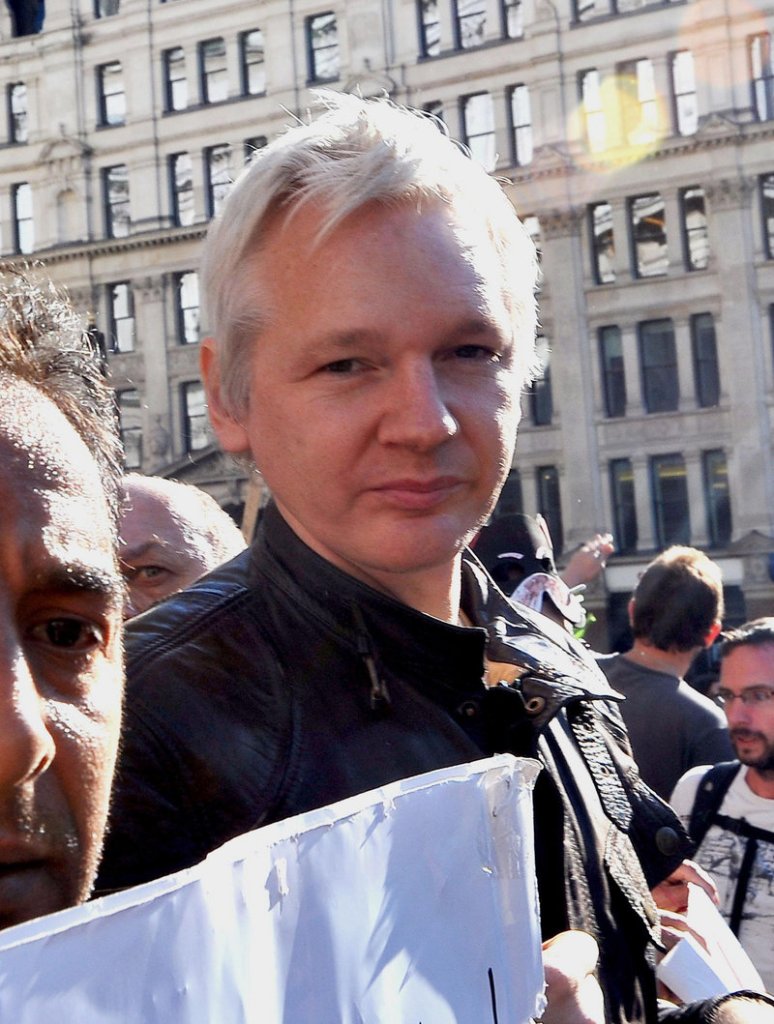WASHINGTON – Nearly two months after it made public its entire unredacted file of purloined U.S. State Department cables, WikiLeaks announced Monday that it was suspending “publishing operations” to concentrate on raising money to keep the website in business.
The announcement left in doubt the future not just of WikiLeaks but of what had been thought of as a new style of journalism that would allow would-be whistleblowers to leak documents electronically — without the risk of having to reveal their identity to anyone.
“This is an existential threat to WikiLeaks,” WikiLeaks’ founder Julian Assange declared at a news conference in London. He blamed WikiLeaks’ dismal financial situation on U.S.-based banking institutions, including Bank of America, Visa, MasterCard, PayPal and Western Union, for refusing since December to process donations destined for the website.
The refusal had robbed WikiLeaks of 95 percent of its income, Assange said, in charging that the institutions had acted at the behest of the U.S. government. He said the group needed to raise $3.5 million in the next year to continue its operations at its current levels. He said the website has 20 staff members and about 800 volunteers.
The immediate practical impact of WikiLeaks’ announcement Monday was unclear. The last of the State Department cables was made public Sept. 2, and WikiLeaks’ spokesman Kristinn Hrafnsson told McClatchy Newspapers last week that the website had not been able to accept new submissions for much of the past year. Statements from WikiLeaks over the summer indicated that much of its unpublished material had been destroyed by a disgruntled volunteer.
Assange said WikiLeaks would unveil a new system for submitting material anonymously on Nov. 28 — the anniversary of the first publication of the State Department cables.
The credit card companies cut off donations to WikiLeaks in December, just as the organization reached the height of public awareness with the publication of the State Department cables after three controversial releases of formerly secret U.S. documents in the previous seven months.
In the final month before the financial blockade, the website received more than $1.1 million in donations, according to a chart WikiLeaks distributed.
“The blockade has cost the organizations tens of millions … in lost donations at a time of unprecedented operational costs resulting from publishing alliances in over 50 countries,” WikiLeaks said in a news release. “Our scarce resources now must focus on fighting the unlawful banking blockade.”
The credit card companies declined to offer fresh comment on their dealings with WikiLeaks. Previously, the organizations have denied they had canceled WikiLeaks accounts at the instigation of the Obama administration, but they said that WikiLeaks had violated its service agreements by engaging or encouraging illegal activities — the leaking of classified government documents.
Assange noted that the credit card companies had not cut off donations to the fund that raises money to pay lawyers for his defense against Sweden’s efforts to extradite him from Britain for questioning in a sexual misconduct case. He said the difference showed that the financial companies were concerned with WikiLeaks’ publication of documents, not with criminal activities.
Send questions/comments to the editors.



Success. Please wait for the page to reload. If the page does not reload within 5 seconds, please refresh the page.
Enter your email and password to access comments.
Hi, to comment on stories you must . This profile is in addition to your subscription and website login.
Already have a commenting profile? .
Invalid username/password.
Please check your email to confirm and complete your registration.
Only subscribers are eligible to post comments. Please subscribe or login first for digital access. Here’s why.
Use the form below to reset your password. When you've submitted your account email, we will send an email with a reset code.